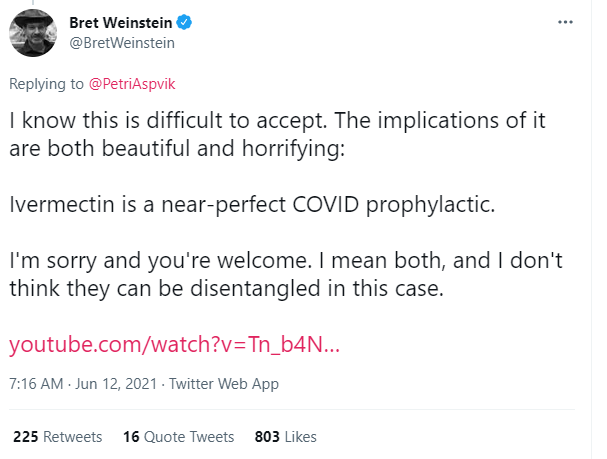
The problem with ivermectin is that it's a potentially viable treatment and most rational scientists dearly wish it would work but the evidence currently just isn't that great for Covid-19 🤷♂️ #WorldIvermectinDay
The real issue is that there's a certain segment of conspiracist weirdos who won't accept anything other than outspoken advocacy for the drug no matter how weak the evidence might be
We will know quite soon whether ivermectin works for COVID-19, and I sincerely hope it does, but pretending the evidence is high-quality when it isn't just makes you seem obsessed not scientific
• • •
Missing some Tweet in this thread? You can try to
force a refresh











